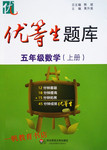题目内容
Monday,Scott comes to school at 8:15 in the morning. He has science eight thirty.He likes because it’s interesting. Scott doesn’t like math. At eleven he has math. The teacher teaches math very well, but Scott doesn’t like him. favorite teacher is the P.E. teacher, Mr. Stone. He is fun. His class sounds funny. He P.E on Monday afternoon. So Scott Monday. From Monday to , Scott has at school at 11: 45. After school, Scott plays on the school playground, then he goes home. On Saturday and Sunday Scott doesn’t go to school.
| 小题1: |
|
| 小题2: |
|
| 小题3: |
|
| 小题4: |
|
| 小题5: |
|
| 小题6: |
|
| 小题7: |
|
| 小题8: |
|
| 小题9: |
|
| 小题10: |
|
小题1:A
小题2:A
小题3:A
小题4:B
小题5:C
小题6:B
小题7:D
小题8:D
小题9:A
小题10:B
试题分析:本文叙述了斯科特的日常的活动,叙述了他在周一到周五的活动,他喜欢科学,不喜欢数学,他喜欢他的体育老师。在周末不去上学。
小题1:考查介词及语境的理解。A. On后跟在具体的某一天,on跟星期几; B. At 后跟具体的时刻;D. The表示特指。在周一斯科特在早晨8:15来到了学校。在周一用介词on,故选A。
小题2:考查介词及语境的理解。A. at 后跟具体的时刻; B. in+月份或年份; C. on 跟星期几或具体的某一天。他在8:30上科学课。在几点用介词at,故选 A。
小题3:考查名词及语境的理解。 A. science科学; B. English英语; C. Chinese语文; D. math数学。他喜欢科学因为它是有趣的。根据上句He has science eight thirty 可知这里指的是科学,故选A。
小题4:考查连词及语境的理解。 A.And和,表示并列; B. But但是;表示前后是转折关系; C. So因此,表示前后是因果关系; D. Then副词,然后,那么。根据上句说的是喜欢的科目,这里叙述的是不喜欢的科目,所以应该用but表示转折,故选B。
小题5:考查名词所有格及语境的理解。A. Scott斯科特; B. he’s 他是; C. Scott’ s 斯科特的;D. him他。他最喜欢的老师是体育老师。这里缺少的是定语,根据上文可知指的是斯科特的,故选C。
小题6:考查动词及语境的理解。他在星期一下午上体育课。这里主语是he,是第三人称单数,所以谓语动词用单数。故选B。
小题7:考查动词及语境的理解。 A. like 喜欢; B. want 想要; C. wants 想要,是第三人称单数; D. likes 喜欢,是第三人称单数。因此斯科特喜欢星期一。这里Scott 是主语,是第三人称单数,根据句意故选D。
小题8:考查名词及语境的理解。 A. Wednesday周三; B. Saturday周六; C. Sunday周日; D. Friday周五。从星期一到星期五,斯科特在11:45吃午饭。根据句意故选D。
小题9:考查名词及语境的理解。 A. lunch 午饭; B. breakfast早饭; C. supper 晚饭; D. dinner 正餐。从星期一到星期五,斯科特在11:45吃午饭。根据常识可知应选A。
小题10:考查名词及语境的理解。 放学后,斯科特在学校的操场踢足球。play+球类运动,球类运动前不能用冠词,故选B。

练习册系列答案
 优等生题库系列答案
优等生题库系列答案
相关题目